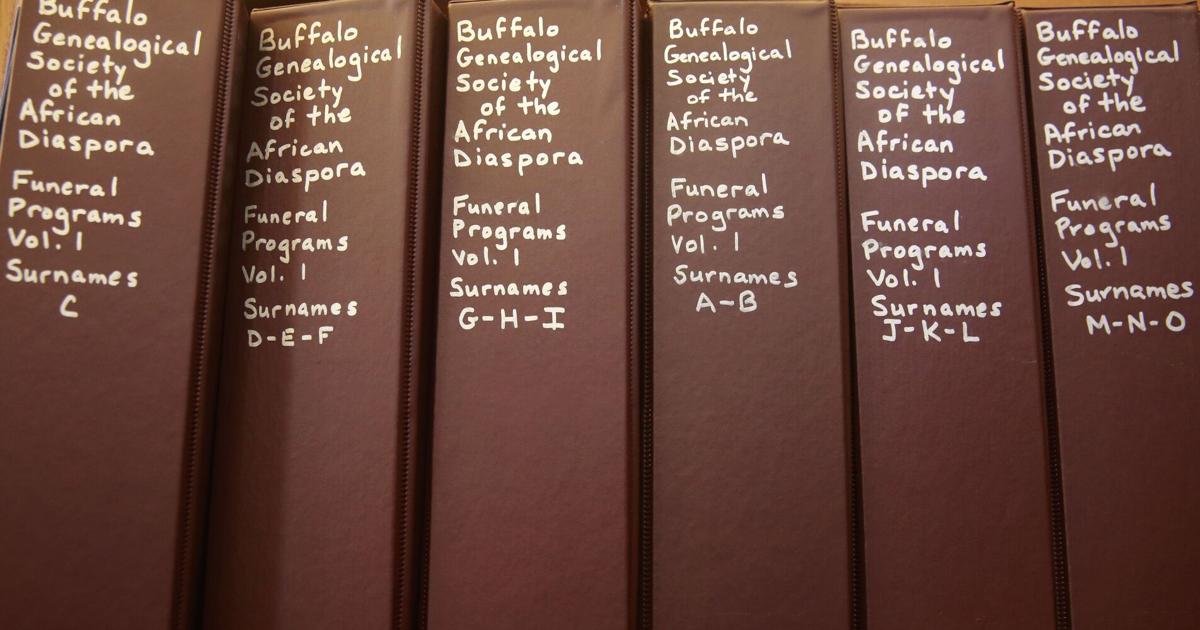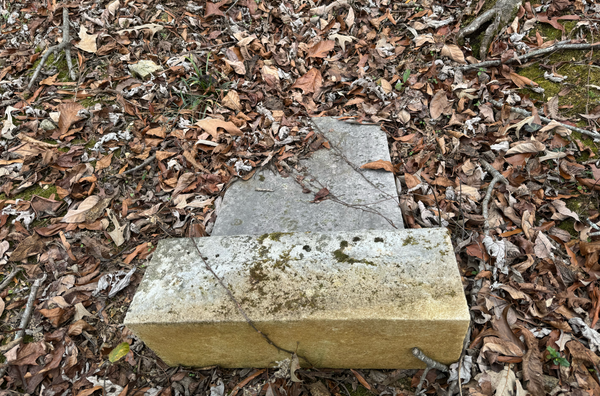- the dead zine.
- Posts
- Cooking from a grief (food) archive
Cooking from a grief (food) archive
Issue 003


My inheritance when my Mom died weeks before Christmas wasn’t an obscene amount of money to take away all my financial woes—they were recipes. All kinds of recipes.
Browned, loose pages from a cookbook in simple typeface with really country recipes. Scribbles in cursive on lined recipe cards. Random scraps of paper with short notes that could maybe grow up to be a recipe when it got older. Clippings from the backs and sides of food boxes, newspapers and magazines. And what truly stopped me in my tracks: a recipe for a Nigerian dish in my Mom’s handwriting in blue ink on college-ruled paper.
One of my sisters shoved them in my face from a random pile she’d discovered as we methodically went through all her things, trying to distract ourselves from the weight of grief that sat in the room with us along with garland, a tree decorated with brown and gold bulbs and manufactured Christmas joy. Now, they’re buried in a drawer that I can’t easily reach because having that easy access to tears that won’t stop flowing seems like a bad idea mere months into grieving my Mom after her death.
Anytime I’m rustling around the kitchen early in the morning making a cup of tea or putting away leftovers late at night like she used to do, I’m thinking of that sheet of college lined paper stained with blue ink from her pen. How all the things that were my mother and how she grounded herself with food have now become mine in a time of immense, earth-shattering and life-altering grief: an extensive cookware collection she spent most of her life amassing, a cookbook collection spanning decades that fills multiple bookshelves and the random pile of mostly handwritten recipes.
Shortly after my Dad died in 2021, I wrote a piece about how family recipes can act as a connection to the dead and cooking them is an additional way to commune with loved ones that are no longer with us. I likened them to being an archive of sorts—a repository of someone’s dedication to cooking, a sampling of their likes and expertise and a written representation of pieces of their heart. That last part is maybe too wistful and sentimental but I deeply believe you can look at the food someone prepared as being a marker of who they were and how they cared for others. Especially in times of grief and unmoored sadness.
But cooking from a grief (food) archive is more than all of those things. It is a way of keeping their memory and legacy alive. And they alive as if they never left. To remember them in a tangible, practical way that you can taste and for the memory from your tongue to speak. Using their recipes is like spending time with them, imagining you’re shit talking in the kitchen as you watch them create, and is a pledge in not ever forgetting them. The memory of the sound of their voice or other little quintessential quirks may fade over time. But how it feels to eat a spoonful someone we loved cooked often is reaching beyond this groundless plane into an eternal one. An infinite remembrance.

Norma Jean and Carole Darden’s Spoonbread and Strawberry Wine: Recipes and Reminiscences of a Family is one enduring, elemental example of a cookbook that could be looked at as archival, for multiple reasons. The cookbook was published in 1979 during a time when cookbooks written by Black authors were few and far between. Their cookbook pioneered and epitomized the popular cookbook genre that combines memoir-style writing and other personal stories with recipes. Spoonbread and Strawberry Wine also touched on grief.
An entire chapter is dedicated to funeral foods. Some Darden family members were morticians and owned a funeral home, hence their implicit understanding of the role food, eating and the seeking of comfort play during times of loss. Within the pages of their cookbook, they pen that cooking for those who are bereaved—and all it entails with planning, shopping for the ingredients, delegating who will cook what— is a “simple act of thoughtfulness to the living.”
Cooking either for yourself or others during times of loss is kindness in motion that can’t be measured. And cooking from recipes or cookbooks that loved ones lovingly used through the years, leaving them behind as a tribute to how they acted in intentional service to those in their community, is an act of cooking from the void, the gap of who has been taken in beloved presence. I am thinking about all this as I grieve, as I mourn the woman I came from, from who I entered this world from, how my grief is both calcified and exalted in trudging to the kitchen each day.
In the most cliches of being a Black woman from the South, everything I learned about food, cooking and being an impeccable host came from my mother. As a young girl, I stood on her heels, observing and taking mental notes, a practice that later served me well to be able to cook entire meals for our family without her help. As I grew older, I’d call my Mom if I got stuck with a certain dish or didn’t remember a technique. She’d give her advice and we’d laugh, one of the times where we could leave the strife that sometimes characterized our relationship in another distant place.
Somewhere far from here. Somewhere quiet and holy.
My mother is embedded within my cooking soul, my cooking spirit. She is who I am always referencing with the flick of a wrist as I turn pancakes on a tranquil Sunday morning or when I’m trying to figure out why my gravy for smothered porkchops thinned instead of thickening. When I shove any piece of nourishing food in my mouth, she is who I call to mind, imagining the sound of her voice that often carried, speaking outloud her opinions as she ate. Declaring what I prepared as delectable with a slight smirk and subtle nod of approval.
And unsurprisingly, I can now cook from her archive in my grief because like she always did when she was alive, she looked after me. She planted the seed for me to have pieces of her to grasp when she was long gone. She planned and hoped and prayed and dreamed for me to reach for her in that sense of longing, daring our relationship to be simple and uncomplicated.
Maybe I should take those recipes out the drawer more.

Like what you read? Want to support this work on Black grief? Consider becoming a paid subscriber for $7/month or $70/a year.


Join the conversation